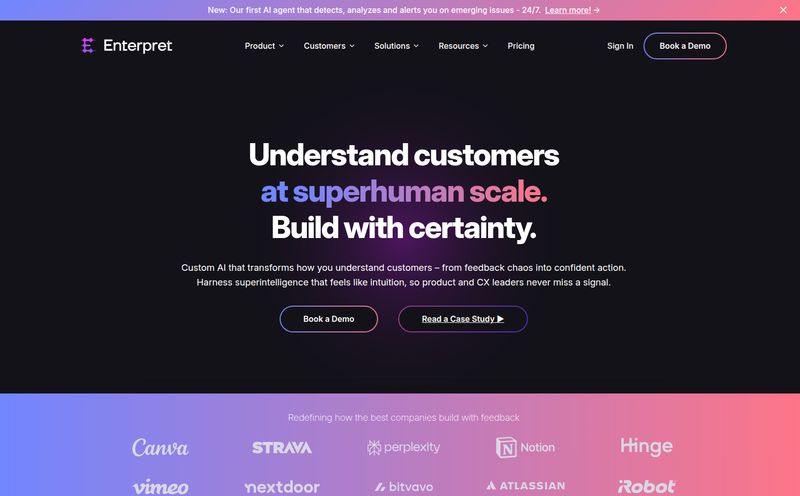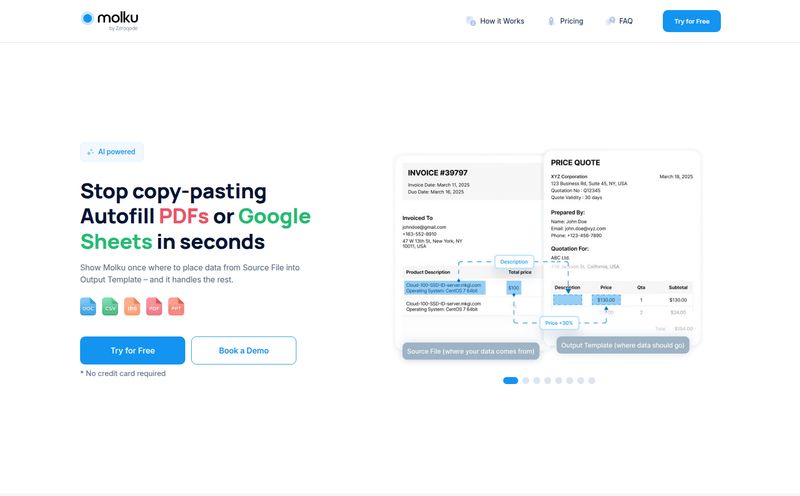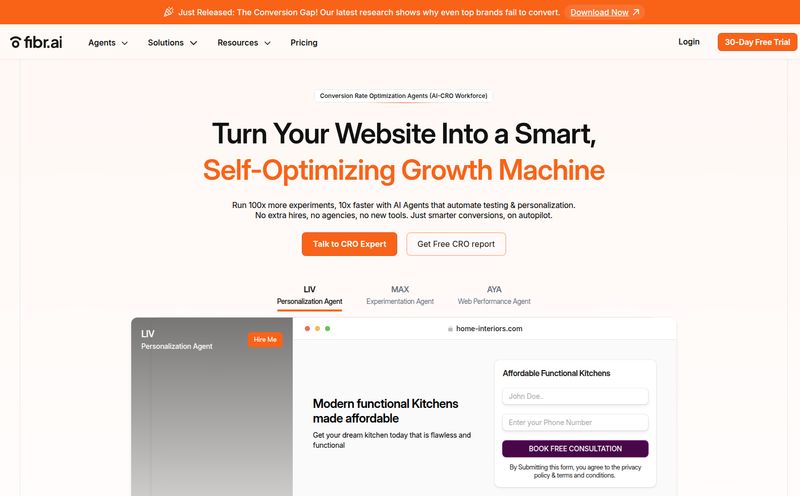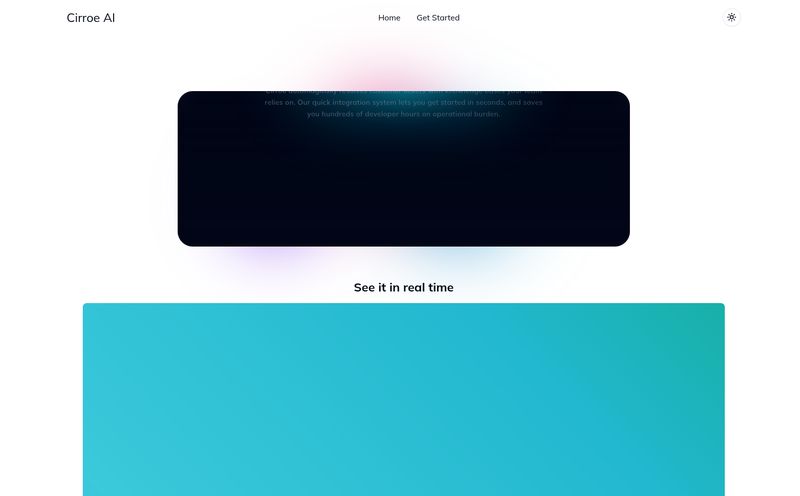The NFT space has been… a rollercoaster. We all saw the 2021 gold rush, where JPEGs of rocks and apes were selling for more than my house. Then came the crash, the silence, and the collective “I told you so” from a huge chunk of the internet. For a while there, it felt like the whole concept was destined to be a weird footnote in tech history.
But I've been in this game long enough to know that after the hype dies, the real innovation often begins. And that’s where my curiosity led me to a little R&D studio called Alethea AI. They’re not just trying to sell you another profile picture. They’re trying to give that picture a soul. Or, at least, a pretty convincing AI-powered one.
So, what’s the deal? Is this the evolution the NFT world desperately needs, or just more techno-optimistic jargon? Let’s get into it.
So, What Exactly is Alethea AI?
On the surface, Alethea AI describes itself as a “research and development studio working at the intersection of Generative AI and Blockchain.” Okay, lots of buzzwords there, I get it. But when you peel back the layers, the concept is genuinely fascinating. They aren't just making AI, and they aren't just making things on a blockchain. They’re mashing the two together to create what they call iNFTs – interactive and intelligent NFTs.
Think about it like this: your standard NFT is like a beautiful, framed painting. You can own it, display it, and prove it’s yours. An iNFT, in theory, is a painting that can talk to you about its own brushstrokes, tell you a story, or even learn from your conversations. It’s a pretty wild idea, moving a digital asset from a static object to a dynamic character.
Beyond the Hype: Breaking Down iNFTs
The term “intelligent NFT” sounds cool, but what does it mean in practice? The core idea is to embed an AI personality into an NFT, which is secured and owned via the blockchain. This personality isn't just a pre-written script. It’s powered by generative AI, meaning it can create new responses, new ideas, and maybe even new art on its own.
Alethea AI says their goal is to enable “human-like connections with emotional responses.” I’m a bit skeptical about true “emotion,” but the potential for deeply engaging, personalized interactions is undeniable. We're talking about digital companions, game characters that actually remember you, or educational guides that can adapt to your learning style. It’s a huge leap from a simple PFP.

Visit Alethea AI
This isn't just a gimmick layered on top of a JPEG. It’s a fundamental rethinking of what a digital asset can be. The blockchain part ensures you truly own this intelligent agent, and the AI part gives it life. A pretty powerful combination if you ask me.
The Tech Stack: An AI Protocol for All?
So how are they pulling this off? This is where it gets a little more technical, but stick with me. Alethea is building what they call the “AI Protocol.” This isn't just one tool; it’s a whole framework designed to be the standard for creating and interacting with these intelligent assets. It's built around their native token, the ALI token, which acts as the fuel for the ecosystem—regulating, incentivizing, and enabling the creation of these iNFTs.
The Dream of Decentralized AI
One of the most compelling parts of their mission is the focus on decentralized AI. Right now, a few massive companies (we all know who they are) have a stranglehold on cutting-edge AI development. Decentralization, a core tenet of the crypto world, aims to break that up. By building on a blockchain, Alethea’s protocol allows anyone to participate in, contribute to, and govern the AI. It’s about giving ownership and control back to the users and creators, not locking it in a corporate silo.
What is Sovereign AI?
You might also see them talk about “Sovereign AI.” This is directly linked to decentralization. It’s the idea that you, the owner of the iNFT, have ultimate authority over your AI. It can’t be turned off or censored by a central company. It's yours, in the same way the Bitcoin in your wallet is yours. For anyone who’s been burned by a platform changing its terms of service overnight, this concept should be music to your ears.
The Good, The Bad, and The Waitlist
Alright, let’s get down to brass tacks. No platform is perfect, especially one this ambitious.
The Upsides are Obvious
What I really appreciate about Alethea AI is its research-first approach. This doesn’t feel like a quick cash grab. They’ve published papers and seem genuinely invested in solving the hard problems associated with merging these two complex technologies. The focus on iNFTs is also a breath of fresh air. It’s a tangible, exciting application that moves beyond speculation and into real utility. The potential for creating genuine connections with a digital character is something straight out of science fiction, and they’re one of the few teams taking a serious shot at it.
But There are Some Caveats
On the flip side, for a company with such big ideas, the information on specific product offerings can feel a bit... sparse. It’s very high-level, very conceptual. I find myself asking, “Okay, but what can I build with this today?” And that leads to the next point: if you're a developer wanting to get your hands dirty, you have to join a waitlist for API access. This is a pretty standard practice for new tech rollouts, but it does create a barrier and slows down community experimentation. It makes it hard to gauge how powerful the tools really are when only a select few can use them.
What's the Price Tag on an Intelligent Being?
This is the big question for many, and the answer is… we don’t really know yet. There’s no clear pricing page or subscription model listed. Given the use of the ALI token and the decentralized nature of the protocol, I’d wager it won’t be a simple monthly SaaS fee.
I can see a few possibilities:
- Gas Fees and Token Usage: Interactions with iNFTs or creating new ones could require ALI tokens, similar to how Ethereum transactions require ETH for gas.
- Creator-Set Pricing: The protocol might allow creators to set their own terms for minting or interacting with their iNFTs.
- Staking and Governance: The cost might be less about direct payment and more about participating in the ecosystem by staking tokens to secure the network or vote on proposals.
For now, this remains speculative. It’s an area I’ll be watching closely as the platform matures.
My Two Cents: Is Alethea AI Onto Something Big?
In my honest opinion? Yes. I think they are. The execution is still an open question, and the challenges are immense. They have to overcome technical hurdles, convince a skeptical market, and build a community from teh ground up. That’s no small feat.
But the core concept—giving digital assets a life of their own, owned by the user—is incredibly powerful. It’s the kind of big swing the web3 space needs. The NFT market can't survive on static images forever. It needs to evolve. It needs utility, interactivity, and a reason to exist beyond a Discord-fueled hype cycle. Alethea AI, or at least the ideas they are championing, could be the catalyst for that change.
I'm not saying go all-in on ALI tokens or that iNFTs will be the next big thing overnight. But I am saying that this is a project to watch. It represents a convergence of trends—AI, blockchain, and the metaverse—that could define the next decade of the internet. And I, for one, am excited to see if they can pull it off.
Frequently Asked Questions
1. What is an iNFT?
An iNFT, or interactive and intelligent NFT, is a type of non-fungible token that has an AI personality embedded within it. Unlike a static NFT (like an image), you can talk to an iNFT, and it can learn, respond, and generate new content on its own. Ownership is secured on the blockchain.
2. Is Alethea AI just for crypto experts?
While the underlying technology is based on blockchain and crypto (the ALI token), the goal is to create user-friendly experiences. The end vision is likely for people to interact with iNFTs in games, apps, or metaverses without needing to be a blockchain expert, though some familiarity will probably be helpful initially.
3. How is Alethea's AI different from something like ChatGPT?
The core generative AI tech is similar. The main difference is ownership and application. ChatGPT is a centralized service owned by OpenAI. An iNFT built on Alethea's AI Protocol is a decentralized AI agent that you own. It's integrated into an asset on a blockchain, giving it persistence, scarcity, and true digital ownership.
4. Can I use Alethea AI's tools right now?
Full public access is still limited. While you can engage with their community and some existing projects, access to the developer tools and API currently requires joining a waitlist. Their platform is still in an active development and rollout phase.
5. What is the ALI Token?
The ALI Token is the native utility token of the AI Protocol. It's used to create iNFTs, regulate the AI, incentivize developers, and enable governance, allowing token holders to vote on the future of the protocol. It’s the economic engine of their ecosystem.
The Final Word
Alethea AI is tackling a monumental task. Merging the complex worlds of generative AI and decentralized blockchains is fraught with challenges. But the vision is undeniably compelling. In a digital world overflowing with static content, the idea of owning a piece of the internet that has a life of its own is, well, pretty incredible. Whether iNFTs become our future digital companions or a niche experiment remains to be seen. But it's a bold step, and in the world of tech, bold steps are the only ones that truly matter.



